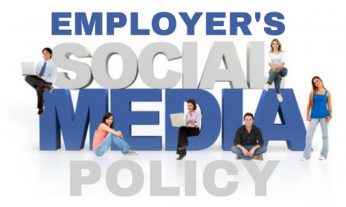 A number of California workers have faced of late some tough decisions with regard to their employment and labor strikes. Should they support fellow employees who wish to strike, or should they cross the picket line to continue working at their jobs? If you need help understanding the ramifications of either choice, a local employment lawyer is a good source for answers.
A number of California workers have faced of late some tough decisions with regard to their employment and labor strikes. Should they support fellow employees who wish to strike, or should they cross the picket line to continue working at their jobs? If you need help understanding the ramifications of either choice, a local employment lawyer is a good source for answers.
Local Calls for Labor Strikes
Strikes by workers are nothing new in this country, and Californians today are seeing several examples of employees fighting for improved wages, better working conditions, and a stronger voice in the workplace through organized strikes, such as:
- University of California workers staged a three-day strike in hopes of increasing wages and reducing wage inequities. Service workers, security personnel, gardeners, and custodians across a score of California campuses stood on picket lines in an attempt to gain public support and leverage in contract negotiations after AFSCME Local 3299 and university officials were unable to reach an agreement.
- California Nurses who are part of the CAN/NNU union have been part of a strike involving Kaiser, Oakland Children’s, and Sutter Hospitals.
- The six day Los Angeles teachers strike just ended yesterday and teachers are back on the job today. A new agreement was reached with the School District for among other items, a 6% raise and the promise of a gradual reduction of class size.
Questions About Labor Strikes
Going on strike is no small matter. Contemplating such an action as a group is a weighty thing, and the stakes are no less significant for every single individual who is confronted with such a decision. The questions surrounding a strike often include the following:
Do Labor Strikes really ever accomplish anything?
Yes and No. Sometimes, striking does not result in wage gains or other benefits in any measurable way, but sometimes it does. Always, it could be argued, it brings attention to the issues and impacts public opinion, which, in turn, could sway policy-makers and employers.
Are Labor Strikes Legal?
Yes. However, strikers may not engage in misconduct, including:
- Blocking individuals from coming or going into a location;
- Threatening those who do not wish to join the strike;
- Attacking employers, managers, or spokespersons on the other side.
Can anyone go on strike anytime?
No. There are rules to striking. The purpose of the strike must be lawful (it can not be to compel an employer to do something that is contrary to state or federal law), and the timing of the strike must comply with legal regulations. Additional restraints are attached to certain groups. For example, striking at a health care facility requires a minimum of 10 days written notice.
Can you be fired and replaced for participating in labor strikes?
The National Labor Relations Act gives employees the right to strike in order to attempt to secure improved working conditions, wages, and benefits. Strikers, generally speaking, are entitled to be reinstated to their jobs at the end of the strike.
Will striking put you on a targeted list by management?
Maybe. However, this would put your employer in hot water. [Read more…]



